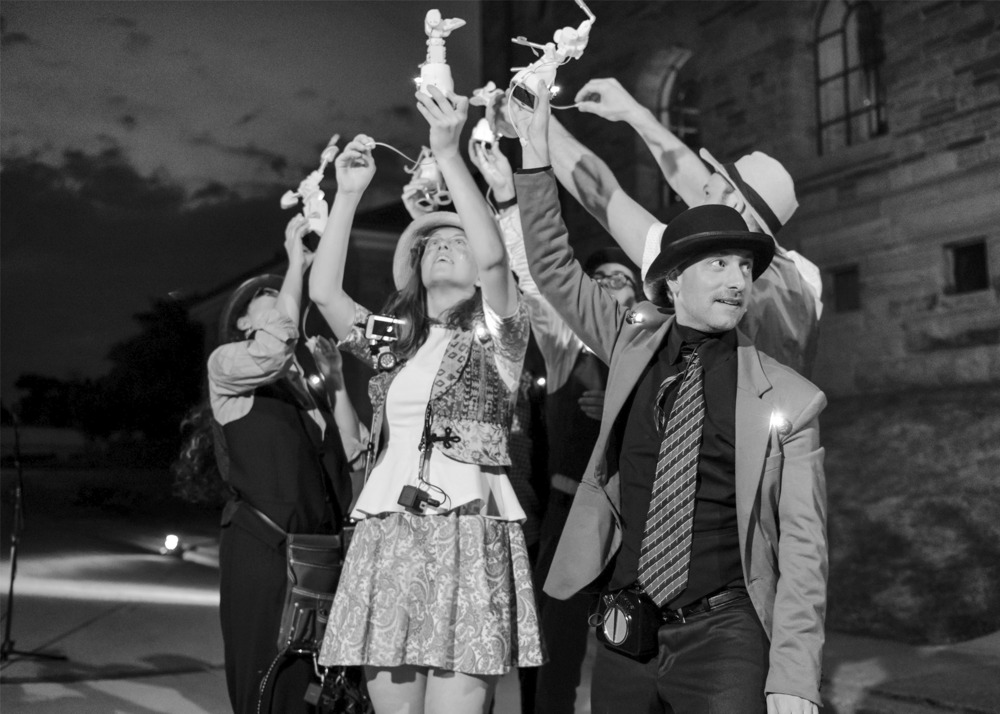
BABEL-O-DROME
first performed on July 26, 2019
Museum of Steam and Technology, Toronto, Canada
performed three times in 2019
COLLECTIF BUS 123
Nikolai Afanasev, Barbara-Audrey Bergeron, Florian François, Bea Labikova, Michael Lynn, Dorsai Ranjbari, Raphael Roter, Christine Duncan, the Element Choir
Toronto, Canada
000781615i000781615n000781615f000781615o000781615@000781615c000781615o000781615l000781615l000781615e000781615c000781615t000781615i000781615f000781615b000781615u000781615s000781615100078161520007816153000781615.000781615c000781615o000781615m
collectifbus123.wixsite.com/collectifbus123
BABEL-O-DROME
COLLECTIF BUS 123
Based in Toronto, we use interactive, participatory approaches to explore questions of identity in one of the most polycultural cities in Canada. Our latest production, “Babel-o-drome,” is an atypical ambulatory and choral play, bringing together interdisciplinary members of our collective, improvising choristers and a participating public. The assembled group walks between multilingual interactive scenes presented in situ indoors and outdoors. The performance converges theater and multimedia to address the relationship between language, identity, and communication.
This particular piece relies on several languages—oral, textual, visual, sounds, and programming—to create a specific style of scenic writing. “The Element Choir” is our artistic partner and their collaboration is important for “Babel-o-drome.” The soundscapes are amplified by their sound-making and their physical presence. The choir members also help to engage audience members and guide them on the path between the interactive scenes.
The public is invited to join in the artistic activities by singing, creating rhythms, sound textures, and words, and also to explore interactive objects, including portable theremin-like “ooblek” devices and typewriters morphed into Morse coders. The specificity of the show is made up of several elements: it’s interactive, ambulatory, multimedia, and multi-lingual; it includes an improvisational choir and it focuses on public participation.
The themes proposed by “Babel-o-drome” are current and urgent. The question at the heart of the show: what is our own reality when around us fiction and reality collide? An army of social, political, and commercial networks spread their version of the world in real time around the globe. They’ve invaded the virtual space, our physical space, and are stepping into our mental space.
We want to explore the effects of globalization by questioning our relationship to all forms of media as rapporteurs and interpreters of current events. These means of mass communication interpret our world and, as a byproduct, interpret us as well: they reflect a filtered image of ourselves, manipulated, and distorted according to the needs of the cause which they serve (political, touristic, economic, etc.). In doing so, they try to redefine us. Who are we when faced with this hyper-mediatization of the world and ourselves? The loss of our own identity, an identity formulated by us and not by their manipulative pressures, is imminent. In other words, who we are is being determined by others and who’s to tell what’s real and what is fiction.